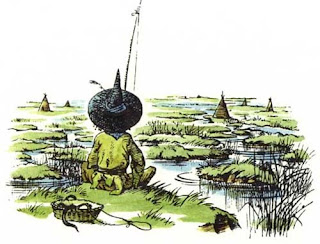Monthly Archives: November 2011
What You Should Do Next
What should we do now?
How should we respond?
When life seems to be running rapidly into a dead end
When we feel carved out and emptied by the rivers of this world’s realities
When the weight of our pain threatens to crush
When our hearts are pitted and scarred by pain, anguish, shame
What should we do?
Yes, we continue to obey, to follow the signs.
To what purpose? To what end?
The men who walked in the fire told a king that even if God refused to rescue, they would continue to obey.
The man who lost all but his life declared that even if God took the last thing remaining to him, he would continue to trust.
Why do we obey, why do we trust even when we cannot seem to find the light?
Listen.
Listen to the Word speak.
Listen to what the Word says as He is drawing very near to His own darkness.
“Now my heart is troubled, and what shall I say? ‘Father, save me from this hour’? No, it was for this very reason I came to this hour. Father, glorify your name!”
The Glory of God our Father.
Out of the rocks, His glory bursts forth.
Out of the dead and the dying, His beauty shines out.
All praise to God the Father, God the Son, and God the Holy Spirit.
Father, glorify Your name!
Follow the Signs
May we continue our conversation from last week?
Reality is hard.
Our family has become steeped in pain and loss.
Many others suffer far greater tragedies.
Reconciling the hurt with the heart of God is hard.
It is tempting to add a veneer of softness, to speak in cliches that turn raw, ripped-open pain into a lie.
Sometimes this is even encouraged among those of us who follow Christ.
Yet to do this denies that we are real, that our hearts can be ripped in two, that our pain and loss can suffocate and almost overwhelm us.
To do this denies that Christ is real, that His body and heart were also ripped apart.
My God, my God, why have you forsaken me?
All through the Bible, God seems to not place much importance at all on whether we are free from pain or suffering.
Abel. Abraham. Joseph. Moses. Uriah the prophet. John the Baptist…Jesus’ cousin. All of the apostles…Jesus’ closest friends.
Understanding why Kristina had to die is hard.
I might never know the reason.
God’s purposes are not for me to understand His plans: His plan is for me to understand Who He is…Faith is this unwavering trust in the heart of God in the hurt of here. (Ann Voskamp, A Holy Experience)
Can I trust in the heart of God?
“Once and for all,” said the prisoner, “I adjure you to set me free. By all fears and all loves, by the bright skies of Overland, by the great Lion, by Aslan himself, I charge you –”
“Oh!” said the three travelers as though they had been hurt. “It’s the sign,” said Puddleglum. “It was the words of the sign,” said Scrubb more cautiously. “Oh, what are we to do?” said Jill.
It was a dreadful question. What had been the use of promising one another that they would not on any account set the Knight free, if they were now to do so the first time he happened to call upon a name they really cared about? On the other hand, what had been the use of learning the signs if they weren’t going to obey them? Yet could Aslan have really meant them to unbind anyone – even a lunatic – who asked it in his name? … They had muffed three already; they daren’t muff the fourth.
“Oh, if only we knew!” said Jill.
“I think we do know,” said Puddleglum.
“Do you mean you think everything will come right if we do untie him?” said Scrubb.
“I don’t know about that,” said Puddleglum. “You see, Aslan didn’t tell (Jill) what would happen. He only told her what to do. That fellow will be the death of us once he’s up, I shouldn’t wonder. But that doesn’t let us off following the sign.”
We aren’t guaranteed that anything here on earth will turn out okay. I wish we did have that promise.
Instead, if we have nothing else (and we do have so much else!), if we can turn to and trust nothing else, we have the cross.
After his wife of only four years had died of cancer, C. S. Lewis said
If only I could bear it, or the worst of it, or any of it, instead of her…But is it ever allowed? It was allowed to One, we are told, and I find I can now believe again, that He has done vicariously whatever can be so done. He replies to our babble, “You cannot and you dare not. I could and dared.”
And so I find that perhaps, after all, it does not matter why. It does not matter from whence came the hard thing.
If God ever had to prove anything, at the cross He proved His love, His promise to work for the best of all He created.
It is not a bad thing to seek for the why’s and how’s and from where’s. God is able to handle our questions, our fears.
Yet if we never get any answers, if we never know the reasons, if we never understand, we who have chosen to follow Christ, who have allowed Jesus to be the Lord of our lives, we who have embraced His sacrifice of love…
We aren’t let off following the signs.
Art Credits: Photograph of Cross wooden statue by Asta Rastauskiene; Marsh-wiggle picture (I was not able to find the original); Rembrandt’s The Three Crosses
This is Hard.
Grief is hard.
While the rest of us can return to our lives and, for at least a few hours, forget, my brother is faced with his new reality every moment of every day.
The loss of his beloved, now a single daddy…
Reality is hard.
I want to know God and part of knowing Him must involve reconciling what I see around me to what I know of Him through His Words.
The seeking results in ideas and wonderings that reverberate through my heart.
You have walked with me through many of my searchings in the darkness. Will you join me for a few more?
Does God send suffering? Does He send pain?
Some would recoil at the idea.
But why? We see pain result in good all the time in our world. Go to any hospital and look around.
I talk with my youngest brother about this.
He of the scientific bent points out that many things that sometimes have “tragic” results are very important to the existence of the earth, even to our own existence: without wildfires, ecosystems would collapse; without seismic and volcanic activity, our earth could not refresh itself; hurricanes aid island ecosytems; the gene mutations that sometimes produce cancer prevent us from all being clones.
The Bible seems to suggest that God does, at least sometimes, send bad things:
We do not want you to be uninformed, brothers, about the hardships we suffered in the province of Asia. We were under great pressure, far beyond our ability to endure, so that we despaired even of life…But this happened that we might not rely on ourselves but on God, who raises the dead. ~ II Corinthians 1
As he went along, he saw a man blind from birth. His disciples asked him, “Rabbi, who sinned, this man or his parents, that he was born blind?” “Neither this man nor his parents sinned,” said Jesus, “but this happened so that the work of God might be displayed in his life.” ~ John 9
Perhaps, though, whether or not He sends them doesn’t matter.
Bad things happen.
If God doesn’t send them, He certainly has the power to stop them. Yet He chooses to allow them to happen.
Well, take your choice. The tortures occur. If they are unnecessary, then there is no God or a bad one. If there is a good God, then these tortures are necessary. For no even moderately good Being could possibly inflict or permit them if they weren’t. Either way, we’re for it. (C.S. Lewis, A Grief Observed)
Either way we are left trying to reconcile these things with the God that we know to be good.
We are left trying to reconcile the hurt with His heart.
There are tears everywhere and God catches them, puts them into His bottle.
God is always good and we are always loved. Loved enough to be shaped into goodness of Christ Himself. (Ann Voskamp, A Holy Experience)
This reconciliation is hard.
How have you done this? How have you reconciled these hard things with the character of our God?
Will you join me next week as I search through these ideas even more?











